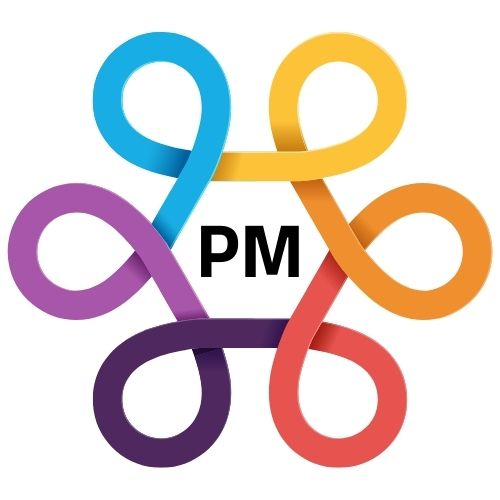Building an AI-Powered Marketing Strategy

Building an AI-Powered Marketing Strategy...
Artificial intelligence (AI) is no longer a futuristic concept; it's a present-day reality transforming the marketing landscape. From personalized customer experiences to predictive analytics, AI offers marketers unprecedented opportunities to optimize campaigns, enhance efficiency, and drive significant ROI. This article explores how to build a robust AI-powered marketing strategy.
1. Understanding AI's Potential in Marketing:
Before diving into implementation, it's crucial to grasp AI's capabilities. AI can:
- Personalize Customer Experiences: Analyze customer data to deliver tailored content, offers, and recommendations.
- Automate Marketing Tasks: Streamline repetitive tasks like email marketing, social media scheduling, and ad campaign optimization.
- Predict Customer Behavior: Forecast trends, identify potential churn, and anticipate customer needs.
- Enhance Content Creation: Generate compelling copy, optimize existing content, and even create visuals.
- Improve Ad Targeting: Refine ad targeting based on real-time data and user behavior.
- Analyze Data and Gain Insights: Extract meaningful insights from vast datasets to inform strategic decisions.
2. Defining Your Marketing Objectives and Identifying AI Use Cases:
Start by outlining your specific marketing goals. Do you want to increase lead generation, improve customer retention, or boost brand awareness? Once you've defined your objectives, identify the AI use cases that align with them.
- For Lead Generation: AI-powered chatbots, personalized email campaigns, and predictive lead scoring.
- For Customer Retention: AI-driven customer segmentation, personalized recommendations, and proactive customer support.
- For Brand Awareness: AI-powered content creation, social media listening, and targeted advertising.
3. Gathering and Preparing Data:
AI thrives on data. Ensure you have a robust data collection and management system. This includes:
- Customer Data: Demographics, purchase history, browsing behavior, and social media interactions.
- Marketing Data: Campaign performance, website analytics, and social media engagement.
- External Data: Market trends, competitor analysis, and industry insights.
Clean and organize your data to ensure accuracy and consistency. Data quality is paramount for effective AI implementation.
4. Selecting the Right AI Tools and Technologies:
The AI landscape is vast, with numerous tools and platforms available. Choose solutions that align with your specific needs and budget.
- Customer Relationship Management (CRM) Platforms: Integrate AI to personalize customer interactions and automate marketing workflows.
- Marketing Automation Platforms: Leverage AI to automate email marketing, social media scheduling, and campaign optimization.
- Predictive Analytics Tools: Use AI to forecast customer behavior, identify trends, and optimize marketing spend.
- Natural Language Processing (NLP) Tools: Employ AI to analyze customer sentiment, generate content, and power chatbots.
- Machine Learning (ML) Platforms: Build custom AI models for specific marketing tasks.
5. Implementing and Integrating AI:
Begin with small-scale AI implementations and gradually expand your strategy. Integrate AI tools with your existing marketing stack to ensure seamless data flow and workflow automation.
- Start with Chatbots: Implement chatbots to provide instant customer support and answer frequently asked questions.
- Personalize Email Campaigns: Use AI to segment your audience and deliver targeted email messages.
- Optimize Ad Campaigns: Leverage AI to refine ad targeting and optimize bidding strategies.
6. Monitoring and Optimizing AI Performance:
Continuously monitor your AI-powered marketing campaigns to track performance and identify areas for improvement.
- Track Key Performance Indicators (KPIs): Monitor metrics like conversion rates, customer engagement, and ROI.
- Analyze AI-Generated Insights: Use AI-powered analytics tools to extract meaningful insights from your data.
- Refine AI Models: Continuously train and optimize your AI models to improve accuracy and performance.
7. Ethical Considerations:
As AI becomes more prevalent in marketing, it's essential to address ethical considerations.
- Data Privacy: Ensure you comply with data privacy regulations and protect customer data.
- Transparency: Be transparent about your use of AI and how it affects customer interactions.
- Bias: Mitigate potential biases in AI algorithms to ensure fair and equitable marketing practices.
8. Building a Data-Driven Culture:
Foster a data-driven culture within your organization to support AI implementation. Encourage collaboration between marketing, data science, and IT teams.
- Provide Training: Educate your team on AI concepts and tools.
- Promote Experimentation: Encourage experimentation and innovation with AI.
- Share Insights: Share AI-generated insights across the organization.
Conclusion:
Building an AI-powered marketing strategy is no longer an option but a necessity for staying competitive in the digital age. By understanding AI's potential, defining clear objectives, and implementing the right tools and technologies, marketers can unlock unprecedented opportunities to personalize customer experiences, optimize campaigns, and drive significant business growth. The future of marketing is intelligent, and it's here now.
